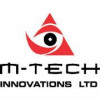Software Trainee
100+ Software Trainee Interview Questions and Answers

Asked in Amazon

Q. Given a singly linked list, find the middle node of the list. If the list has an even number of nodes, return the second middle node.
To find the mid point of a linked list, use two pointers - one moving at double the speed of the other.
Initialize two pointers, slow and fast, at the head of the linked list.
Move the slow pointer by one node and the fast pointer by two nodes until the fast pointer reaches the end of the list.
The node at which the slow pointer is currently pointing is the mid point of the linked list.

Asked in IlexSquare

Q. Create a program for the Fibonacci series.
Program to generate Fibonacci series
Start with two initial numbers, 0 and 1
Add the previous two numbers to get the next number in the series
Repeat this process to generate the Fibonacci series

Asked in TCS

Q. What is an array?
An array is a data structure that stores a collection of elements of the same type in a contiguous memory location.
Arrays have a fixed size determined at the time of declaration.
Elements in an array are accessed using an index starting from 0.
Example: string[] names = {"Alice", "Bob", "Charlie"};

Asked in Infosys

Q. What are the differences between an abstract class and an interface?
Abstract Interface is a class that cannot be instantiated and may contain abstract methods, while Interface is a blueprint for classes to implement specific methods.
Abstract Interface cannot be instantiated, while Interface can be implemented by classes.
Abstract Interface may contain abstract methods, while Interface only contains method signatures.
Abstract Interface can have variables, constructors, and methods, while Interface can only have constants and method signatures.
E...read more

Asked in TCS

Q. What is inheritance?
Inheritance is a fundamental concept in object-oriented programming that allows a class to inherit properties and methods from another class.
Inheritance promotes code reusability, allowing new classes to use existing code.
There are different types of inheritance: single, multiple, and hierarchical.
Example of single inheritance: Class B inherits from Class A.
Example of multiple inheritance: Class C inherits from both Class A and Class B.
Inheritance helps in creating a hierarch...read more

Asked in Infosys

Q. oops concepts in java
Object-oriented programming concepts in Java
Encapsulation: bundling data and methods together
Inheritance: creating new classes from existing ones
Polymorphism: using a single interface to represent different types
Abstraction: hiding implementation details
Encapsulation example: class with private variables and public methods
Inheritance example: subclass inheriting properties and methods from superclass
Polymorphism example: using a parent class reference to hold child class obje...read more
Software Trainee Jobs




Asked in AccioJob

Q. Given a linked list where every node represents another linked list and contains two pointers: (i) a next pointer to the next node in the main list and (ii) a down pointer to a linked list/child list. Flatten t...
read moreFlattening a linked list involves converting a multi-level linked list into a single-level linked list.
A linked list can have multiple levels, where each node may point to another linked list.
To flatten, traverse each node and link all nodes into a single list.
Example: Given a linked list with nodes 1 -> 2 -> 3 and 2 points to another list 4 -> 5, the result should be 1 -> 2 -> 4 -> 5 -> 3.
Use a depth-first search (DFS) approach to explore each level of the linked list.

Asked in AccioJob

Q. How do you reverse an image array?
Reversing an image array involves flipping the order of pixel data in a 2D array representation of an image.
Use a loop to iterate through the array from the end to the beginning.
For a 2D array, reverse each row or the entire array depending on the requirement.
Example: For an array [['A', 'B'], ['C', 'D']], reversing gives [['D', 'C'], ['B', 'A']].
In Python, you can use slicing: reversed_array = original_array[::-1].
Share interview questions and help millions of jobseekers 🌟


Asked in Infosys

Q. What are the core concepts of OOP?
OOPs is a programming paradigm based on the concept of objects that interact with each other to perform tasks.
OOPs stands for Object-Oriented Programming.
It focuses on creating objects that have properties and methods to perform specific tasks.
Encapsulation, Inheritance, Polymorphism, and Abstraction are the four main pillars of OOPs.
Encapsulation is the process of hiding the internal details of an object from the outside world.
Inheritance allows a class to inherit properties...read more

Asked in Miracle Software Systems

Q. Are you okay with signing a bond?
I am open to signing a bond as it reflects commitment and aligns with my career goals.
A bond signifies a mutual commitment between the company and the employee.
It can provide job security and stability, which is beneficial for long-term career growth.
For example, if the company invests in my training, a bond ensures I contribute back to the organization.
I understand that bonds may have terms, but I am willing to discuss them to find a mutually agreeable solution.

Asked in ContinuServe Softech India

Q. How would you calculate the square root of 23490?
The square root of 23490 is approximately 153.2.
Calculate the square root of 23490 using a calculator or math function
The square root of 23490 is approximately 153.2

Asked in Incedo

Q. Write code to swap two numbers.
Swapping of 2 numbers can be done using a temporary variable or without using a temporary variable.
Declare two variables a and b with values
Using a temporary variable:
- Declare a temporary variable temp
- Assign the value of a to temp
- Assign the value of b to a
- Assign the value of temp to b
Without using a temporary variable:
- Assign the sum of a and b to a
- Assign the difference of a and b to b
- Assign the difference of a and b to a

Asked in TCS

Q. What is polymorphism?
Polymorphism is the ability of an object to take on many forms. It allows objects of different classes to be treated as the same type.
Polymorphism is a fundamental concept in object-oriented programming.
It allows a single interface to be used for different types of objects.
Polymorphism can be achieved through method overriding and method overloading.
Example: A shape class with different subclasses like circle, square, and triangle can be treated as a shape object.
Asked in Sciqus Infotech

Q. How does React DOM work?
React DOM is a JavaScript library for building user interfaces that updates the view efficiently.
React DOM renders React components to the DOM
It efficiently updates only the necessary components when data changes
Uses a virtual DOM to improve performance
Example: ReactDOM.render(
, document.getElementById('root'))

Asked in Sketch

Q. what is denounced
Denounced means to publicly declare to be wrong or evil.
Denounced is a verb that means to criticize or condemn openly.
It is often used in the context of denouncing a political leader or a controversial decision.
Example: The activist group denounced the government's decision to cut funding for education.
Example: The CEO denounced the unethical practices of the company.

Asked in T-Systems ICT India

Q. Explain OOPS concepts with a real-world example.
Oops is a programming paradigm that focuses on objects and classes. Real world example: Car
Oops focuses on objects and classes
Objects have attributes (variables) and behaviors (methods)
Example: Car - attributes like color, model, speed; behaviors like drive, stop

Asked in T-Systems ICT India

Q. POLYMORPHISM and its types
Polymorphism is the ability of a single function or method to operate on different data types.
Types of polymorphism: compile-time (method overloading) and runtime (method overriding)
Compile-time polymorphism: multiple methods with the same name but different parameters
Runtime polymorphism: a subclass provides a specific implementation of a method that is already provided by its parent class
Example of compile-time polymorphism: function overloading in Java
Example of runtime po...read more

Asked in M Tech Innovations

Q. Explain the MVC workflow.
MVC is a software design pattern that separates an application into three main components: Model, View, and Controller.
Model represents the data and business logic of the application
View is responsible for displaying the data to the user
Controller acts as an intermediary between Model and View, handling user input and updating the Model accordingly

Asked in TCS

Q. Write a C# program to generate the Fibonacci series.
A C# program to generate Fibonacci series, where each number is the sum of the two preceding ones.
The Fibonacci series starts with 0 and 1.
Each subsequent number is the sum of the previous two numbers.
Example: The first 10 numbers are 0, 1, 1, 2, 3, 5, 8, 13, 21, 34.
A simple loop can be used to generate the series up to a specified count.

Asked in Amazon

Q. Given an integer array nums, find the contiguous subarray (containing at least one number) which has the largest sum and return its sum.
Max sum subarray problem involves finding the subarray with the largest sum within an array.
Iterate through the array and keep track of the current sum and maximum sum seen so far.
If the current sum becomes negative, reset it to 0 as it won't contribute to the maximum sum.
Return the maximum sum found.
Example: For array [-2, 1, -3, 4, -1, 2, 1, -5, 4], the max sum subarray is [4, -1, 2, 1] with sum 6.

Asked in Tech Mahindra

Q. Explain polymorphism.
Polymorphism is the ability of a single function or method to operate on different types of data.
Polymorphism allows objects of different classes to be treated as objects of a common superclass.
There are two types of polymorphism: compile-time (method overloading) and runtime (method overriding).
Example of compile-time polymorphism: function overloading in Java.
Example of runtime polymorphism: method overriding in Java.
Polymorphism helps in achieving flexibility and reusabili...read more

Asked in Infiniti Software Solutions

Q. Which technologies are you proficient in?
I am strong in web development, particularly with JavaScript frameworks like React and Node.js, enabling dynamic and responsive applications.
Proficient in React for building user interfaces; developed a personal portfolio site using React.
Experienced with Node.js for backend development; created a RESTful API for a task management application.
Familiar with database management using MongoDB; implemented data storage solutions for web applications.
Knowledgeable in version contr...read more

Asked in Infosys

Q. What is OOPS?
Object-Oriented Programming (OOP) is a programming paradigm based on objects and classes to structure software design.
Encapsulation: Bundling data and methods that operate on the data within one unit (e.g., a class).
Inheritance: Mechanism to create a new class using properties and methods of an existing class (e.g., a 'Dog' class inheriting from an 'Animal' class).
Polymorphism: Ability to present the same interface for different data types (e.g., a function that can take diff...read more
Asked in Excellence Design

Q. What is the most difficult part for you?
I excel at breaking down complex concepts into manageable parts for effective learning.
Use real-world examples to illustrate difficult concepts, like using a car analogy to explain object-oriented programming.
Incorporate hands-on exercises that allow learners to practice and apply difficult concepts in a safe environment.
Encourage questions and discussions to clarify misunderstandings, fostering an interactive learning atmosphere.
Utilize visual aids, such as diagrams or flowc...read more

Asked in TCS

Q. What are the OOP concepts in Java?
OOP concepts in Java include encapsulation, inheritance, polymorphism, and abstraction, forming the foundation of object-oriented programming.
Encapsulation: Bundling data and methods that operate on the data within one unit (class). Example: private variables with public getters/setters.
Inheritance: Mechanism where one class acquires properties of another. Example: class Dog extends Animal.
Polymorphism: Ability to present the same interface for different data types. Example: ...read more

Asked in IlexSquare

Q. Write a Java program to create a pyramid pattern.
Create a pyramid pattern using Java
Use nested loops to print spaces and stars in a pyramid shape
Start with a loop for the number of rows in the pyramid
Inside the outer loop, use another loop to print spaces for alignment
Then use a loop to print the stars in a pyramid pattern

Asked in Senco Gold

Q. Tell me about yourself.
Aspiring software developer with a passion for coding, problem-solving, and continuous learning in technology.
Currently pursuing a degree in Computer Science, focusing on software development and algorithms.
Completed an internship at XYZ Company, where I developed a web application using React and Node.js.
Participated in coding competitions, achieving top 10% in Hackathon XYZ, showcasing my problem-solving skills.
Contributed to open-source projects on GitHub, enhancing my col...read more

Asked in KodNest

Q. Can you explain your project in detail?
Developed a web-based task management application to enhance team collaboration and productivity.
Utilized React for the front-end to create a responsive user interface.
Implemented Node.js and Express for the back-end to handle API requests.
Integrated MongoDB for data storage, allowing for efficient task retrieval.
Incorporated user authentication using JWT for secure access.
Enabled real-time updates with WebSocket for instant task notifications.

Asked in Ups Logistics

Q. Real world examples
Real world examples showcase practical applications of theoretical knowledge.
Using algorithms to optimize delivery routes for a logistics company
Implementing machine learning models to predict customer behavior for a retail company
Developing a mobile app for tracking fitness goals and progress

Asked in TCS

Q. What are the concepts of OOPS?
OOP (Object-Oriented Programming) is a programming paradigm based on objects and classes, promoting code reusability and modularity.
Encapsulation: Bundling data and methods that operate on the data within one unit (e.g., a class).
Inheritance: Mechanism to create a new class using properties and methods of an existing class (e.g., a 'Dog' class inheriting from an 'Animal' class).
Polymorphism: Ability to present the same interface for different data types (e.g., method overload...read more
Interview Questions of Similar Designations
Interview Experiences of Popular Companies





Top Interview Questions for Software Trainee Related Skills

Calculate your in-hand salary
Confused about how your in-hand salary is calculated? Enter your annual salary (CTC) and get your in-hand salary


Reviews
Interviews
Salaries
Users










